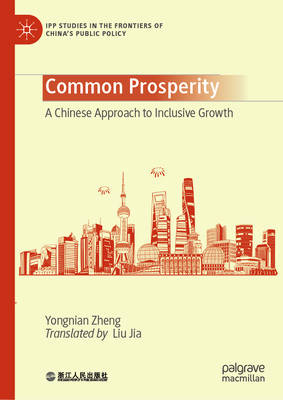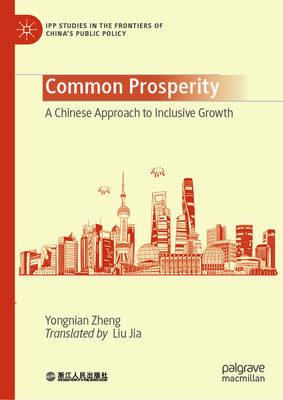
- Retrait gratuit dans votre magasin Club
- 7.000.000 titres dans notre catalogue
- Payer en toute sécurité
- Toujours un magasin près de chez vous
- Retrait gratuit dans votre magasin Club
- 7.000.0000 titres dans notre catalogue
- Payer en toute sécurité
- Toujours un magasin près de chez vous
Description
This book offers an in-depth analysis of China's drive for common prosperity from an insider's perspective. While philosophers and economists have long debated issues of inequality and growth, and societies have evolved from industrial to post-industrial information economies, challenges related to poverty and inequality persist. Major European nations have transitioned from early capitalist societies to modern welfare states, yet similar issues remain unresolved. Professor Zheng Yongnian provides a unique insight into China's approach to addressing these challenges through the lens of common prosperity. Drawing on newly published materials and empirical research, this book contrasts China's development model with Western welfare states, elucidating both the rationale behind and the implications of these differences. This translated version of Professor Zheng's recent work, 共同富裕的中国方案 (originally published in Chinese), is an essential read for scholars and policymakers seeking to understand China's strategy for achieving common prosperity.
Spécifications
Parties prenantes
- Auteur(s) :
- Traducteur(s):
- Editeur:
Contenu
- Nombre de pages :
- 205
- Langue:
- Anglais
- Collection :
Caractéristiques
- EAN:
- 9789819786152
- Date de parution :
- 13-12-24
- Format:
- Livre relié
- Format numérique:
- Genaaid
- Dimensions :
- 148 mm x 210 mm
- Poids :
- 417 g

Les avis
Nous publions uniquement les avis qui respectent les conditions requises. Consultez nos conditions pour les avis.






